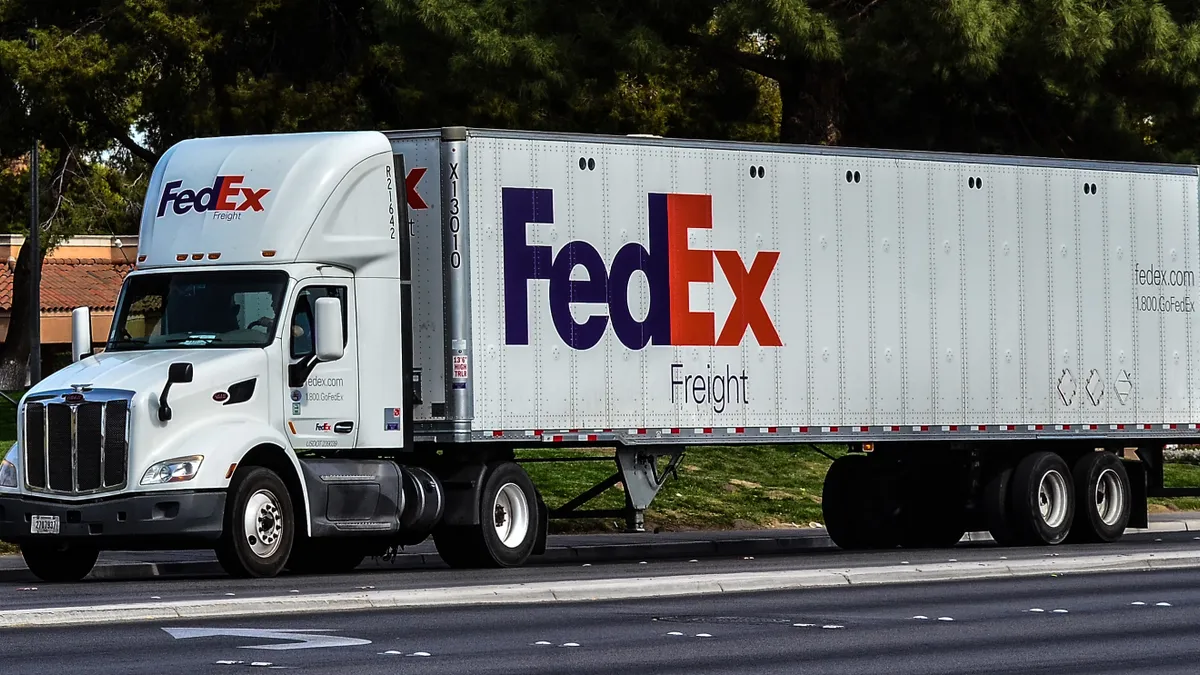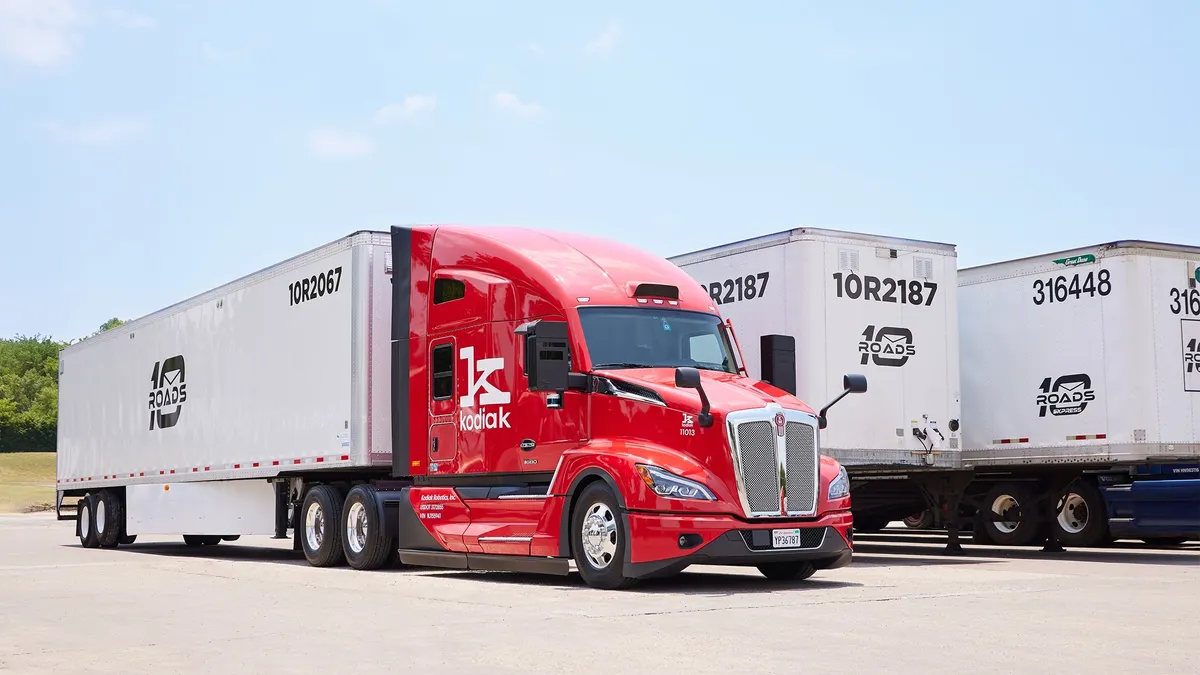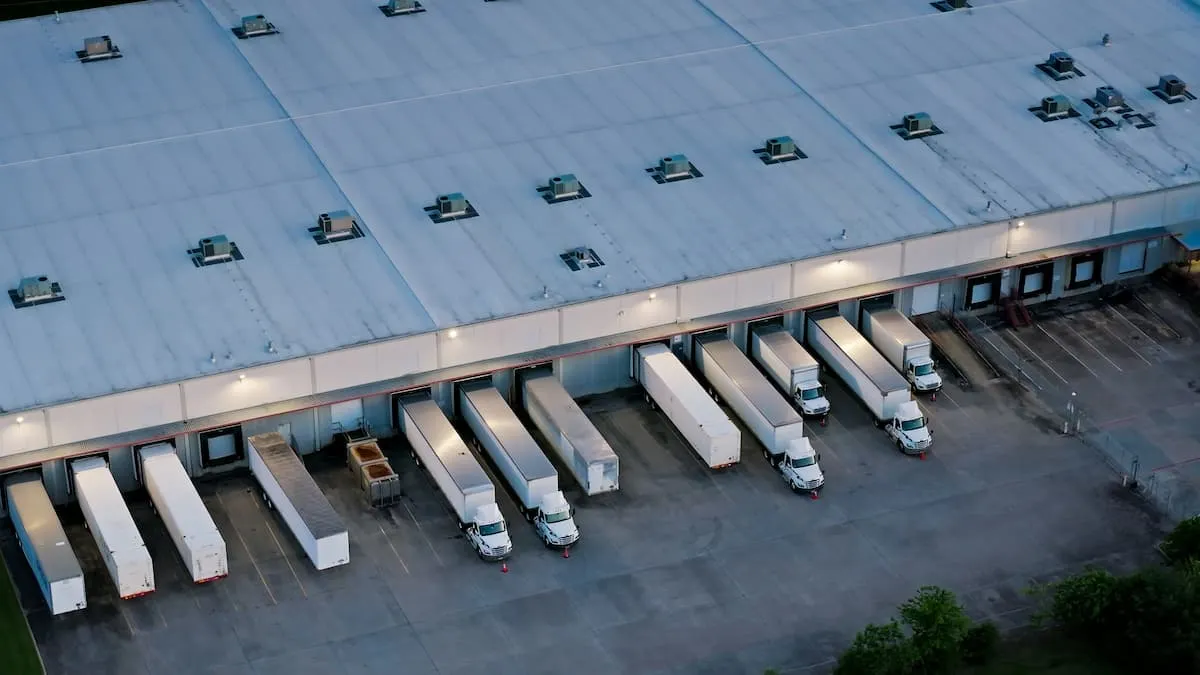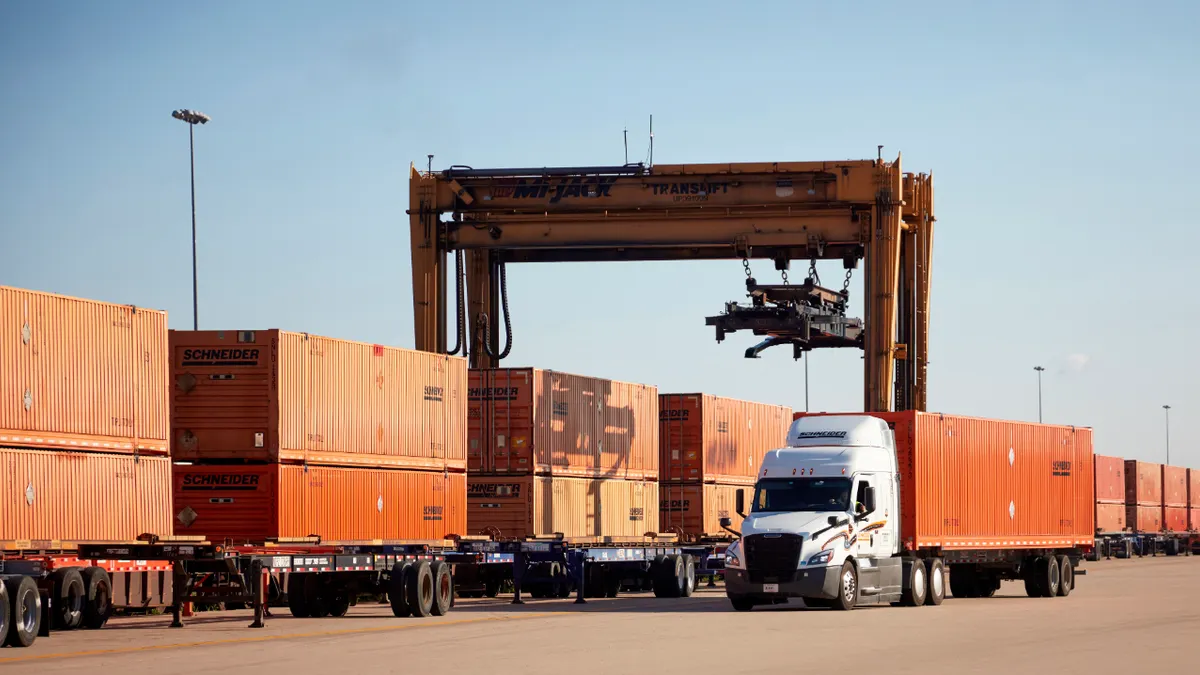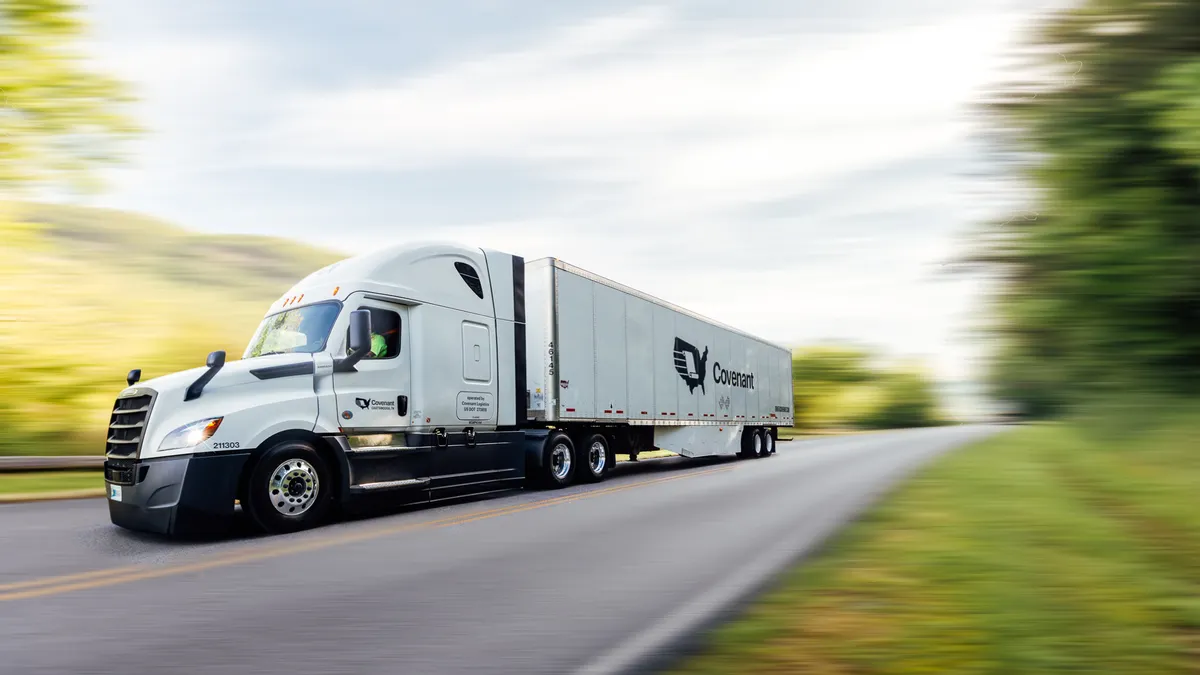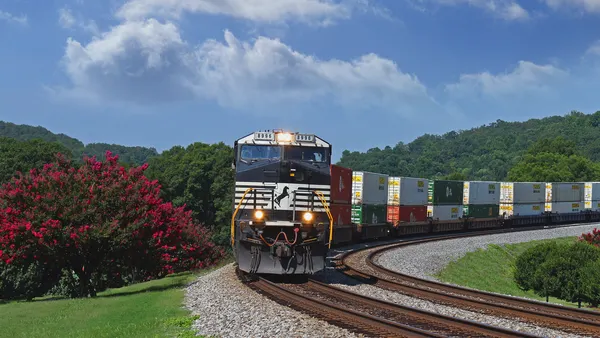ANAHEIM, Calif. — Uber Freight will expand its services beyond dry van and reefer to include flatbed beginning this month, Lior Ron, head of Uber Freight, told attendees Tuesday at the CSCMP Edge conference in Anaheim, California.
Uber Freight will also add bundling to its app which allows drivers to pre-plan multiple loads, Ron said. And Powerloop, the company's trailer leasing program, will expand to California. The program started in Texas, and Bill Driegert, director of Uber Freight, told Supply Chain Dive there are plans to expand in other parts of the country as well.
"In the LA to San Francisco corridor in particular, there's a huge amount of shippers and density," Driegert said, explaining why California was chosen as the next location for Powerloop.
The series of announcements from Uber Freight marks a continued expansion and growth strategy for the freight arm of Uber's business, from various app developments to most recently the establishment of Uber Freight's headquarters in Chicago.
In Uber's S-1 filing with the Securities and Exchange Commission, it described its freight business as "revolutionizing the logistics industry." It also said its models, which allow shipment and price visibility along with streamlined load matching through the app, represent "significant efficiency improvements over traditional freight brokerage providers."
Earlier this month, Morgan Stanley analysts described Uber Freight as going far beyond its competitors in the freight brokerage space. The same research note also predicted an upcoming rollout of flatbed services, which the analysts said could threaten even established brokers.
The brand name behind Uber has in part helped propel Uber Freight's growth. "Before we came to market, there were a lot of companies calling themselves 'Uber for freight,'" Driegert said. The term "uberization" has become ubiquitous with the concept of on-demand matching, whether for consumers looking for a ride, shippers seeking a carrier or any other service.
The concept of uberization is starting to disrupt the brokerage market with not just Uber Freight, but also myriad other players. Digital freight matching startups have popped up in droves, creating a crowded playing field, but with the same intention of increasing transparency and efficiency in the freight brokerage process. "In the traditional market, there's a lot of information asymmetry and stuff that's not shared," Driegert said.
Convoy in June released a tool known as automated reloads, which serves a similar purpose as Uber Freight's just announced bundling and lets drivers book multiple loads at a time, solving some inefficiency issues. Ron said Uber Freight expects a 25% reduction in deadhead (trucks driving without a trailer) with the addition of bundling.
"We're all moving the market forward," Driegert said of digital freight matching startups, without naming names. "The companies that aren't embracing the more automated future, they will get left behind," he said, though he acknowledged many large and established brokers are pivoting to greater digital investments.
A few hours before Uber Freight's announcement of Powerloop expansion, flatbed and bundling, C.H. Robinson CEO Bob Biesterfeld announced a commitment to invest $1 billion in technology over the next five years. Previously, the company committed $1 billion investment over 10 years.
Attendees at the conference noted some suspicions about the ability to remain viable without an asset-based model. If no driver picks a load, for example, the freight broker would need some way to intervene and provide needed capacity. Some attendees pointed to Uber Freight and Convoy's entrances into drop trailers and trailer leasing as a way to grow assets.
Shippers and carriers have also expressed skepticism about the lack of relationship building between the two parties in an on-demand freight matching platform such as Uber's. Although the trucking market has started to cool, tight capacity drove shippers to forge relationships to gain access to the capacity they needed and market themselves as shippers of choice.
Driegert noted it's important not to confuse relationship building and trust. Uber's model, whether for B2C or for freight, uses transparency and real-time data to build trust, Driegert said. "If you make the market transparent, that trust is created very quickly," he said.
He acknowledged the shipper mindset of building a long-term relationship with a carrier and/or broker isn't a mindset that will change overnight, but said many large shippers using Uber Freight are seeing the benefits of an on-demand and transparent model. "We will chip away at it and change the expectations of shippers over time," Driegert said.







